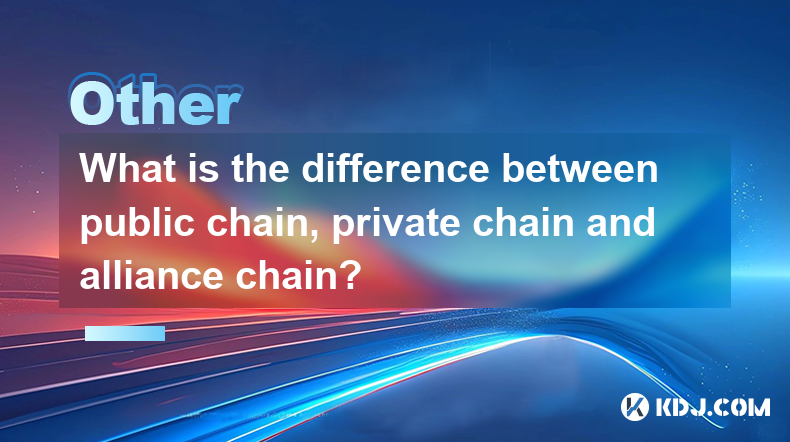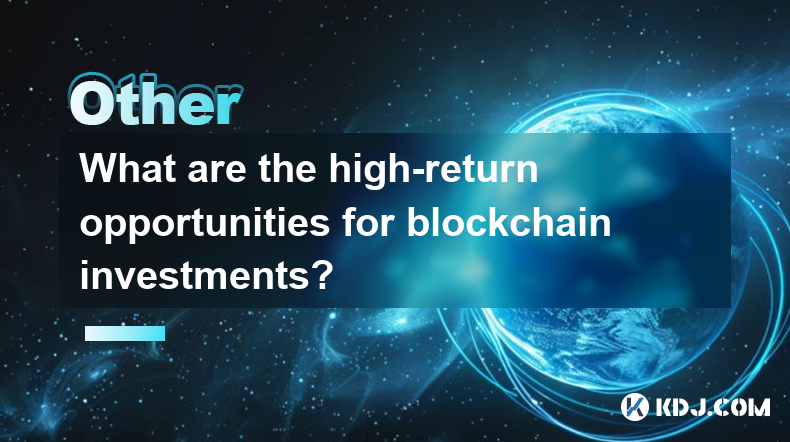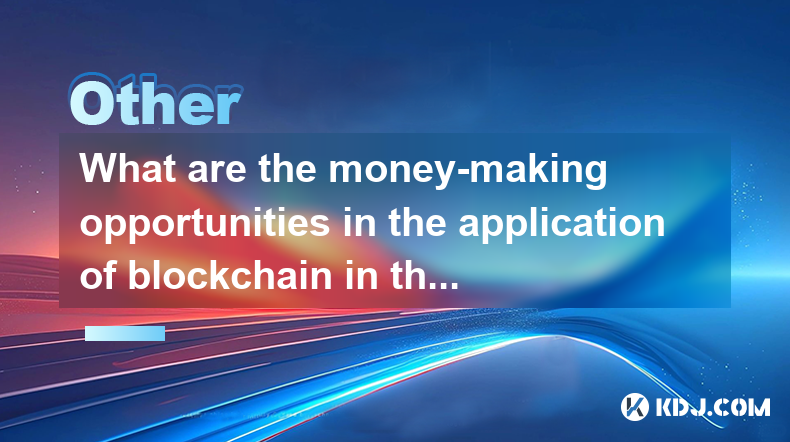-
 Bitcoin
Bitcoin $76,444.7530
-3.77% -
 Ethereum
Ethereum $1,473.8355
-5.46% -
 Tether USDt
Tether USDt $0.9991
-0.08% -
 XRP
XRP $1.7965
-5.51% -
 BNB
BNB $553.4919
-0.36% -
 USDC
USDC $0.9999
-0.02% -
 Solana
Solana $105.2981
-1.74% -
 TRON
TRON $0.2303
0.81% -
 Dogecoin
Dogecoin $0.1422
-4.62% -
 Cardano
Cardano $0.5587
-4.41% -
 UNUS SED LEO
UNUS SED LEO $8.9866
1.01% -
 Toncoin
Toncoin $2.9933
-4.74% -
 Chainlink
Chainlink $10.9113
-4.81% -
 Stellar
Stellar $0.2215
-4.76% -
 Avalanche
Avalanche $16.1163
-3.29% -
 Sui
Sui $1.9371
-3.89% -
 Shiba Inu
Shiba Inu $0.0...01065
-6.69% -
 Hedera
Hedera $0.1469
-3.29% -
 MANTRA
MANTRA $6.2058
-1.53% -
 Dai
Dai $1.0000
0.01% -
 Bitcoin Cash
Bitcoin Cash $269.3457
-2.08% -
 Polkadot
Polkadot $3.3773
-5.87% -
 Litecoin
Litecoin $69.2204
-2.50% -
 Ethena USDe
Ethena USDe $0.9986
-0.01% -
 Bitget Token
Bitget Token $4.0180
-3.25% -
 Pi
Pi $0.5649
-4.50% -
 Hyperliquid
Hyperliquid $11.1928
-2.80% -
 Monero
Monero $195.3885
-4.41% -
 OKB
OKB $50.9235
-0.59% -
 Uniswap
Uniswap $4.7688
-6.95%
What is the difference between public chain, private chain and alliance chain?
Public chains offer transparency and decentralization, private chains provide control and privacy, while alliance chains balance both for collaborative efforts.
Apr 07, 2025 at 01:35 am

Understanding Blockchain Architectures: Public, Private, and Consortium Chains
The world of blockchain technology offers various network architectures, each designed to serve different purposes and priorities. Three prominent types are public chains, private chains, and alliance chains (also known as consortium chains). Understanding their core differences is crucial for navigating the complexities of the cryptocurrency landscape.
Public chains, like Bitcoin and Ethereum, are open and permissionless. This means anyone can participate, whether it's validating transactions (mining or staking) or accessing the network's data. Transparency is a key feature; all transactions are publicly recorded and verifiable on the distributed ledger. This openness comes with potential drawbacks, such as vulnerability to attacks and scalability challenges.
Private chains, conversely, are permissioned networks. Access and participation are controlled by a central authority, often the organization that created the chain. This allows for greater privacy and control over data, as transactions are not publicly visible. However, this centralized nature can raise concerns about transparency and trust. Private chains are often used for internal business processes.
Alliance chains, a hybrid approach, combine elements of both public and private chains. Multiple organizations collaborate to govern the network, sharing control and maintaining a degree of transparency. This collaborative model allows for greater trust and security than a purely private chain while offering more control and privacy compared to a public chain. Many industry consortia utilize alliance chains for streamlined inter-organizational processes.
Public Chains: Open and Decentralized
Public chains are characterized by their open and decentralized nature. This means:
- Open participation: Anyone can join the network, participate in consensus mechanisms, and access the blockchain's data.
- Decentralized governance: No single entity controls the network; decisions are made collectively by the network participants.
- Transparency: All transactions are publicly viewable and verifiable on the blockchain.
- Immutability: Once a transaction is recorded on the blockchain, it cannot be altered or deleted.
- Security: The decentralized nature makes the network resistant to single points of failure and censorship.
However, public chains also have limitations:
- Scalability: Processing a large volume of transactions can be slow and expensive.
- Security vulnerabilities: While decentralized, they can still be vulnerable to attacks like 51% attacks.
- Regulatory challenges: The decentralized and anonymous nature can pose challenges for regulatory compliance.
Private Chains: Controlled and Permissioned
Private chains, in contrast to public chains, are controlled and permissioned networks. Key features include:
- Centralized control: A single entity or organization controls access to the network and its data.
- Limited participation: Only authorized users can join the network and participate in transactions.
- Increased privacy: Transactions are not publicly visible, enhancing confidentiality.
- Faster transaction speeds: The centralized nature allows for faster transaction processing compared to public chains.
- Simplified development: Developing and deploying a private chain is generally simpler than a public chain.
Despite their advantages, private chains have some drawbacks:
- Lack of transparency: The centralized nature can lead to concerns about trust and accountability.
- Single point of failure: The central authority controlling the network represents a potential single point of failure.
- Limited scalability in some implementations: While generally faster than public chains, scalability can still be a concern depending on the implementation.
- Potential for censorship: The central authority can censor transactions or exclude participants.
Alliance Chains: A Collaborative Approach
Alliance chains, or consortium blockchains, bridge the gap between public and private chains. They offer:
- Shared governance: Multiple organizations collaborate to govern the network, sharing control and responsibilities.
- Controlled participation: Access to the network is limited to pre-approved participants.
- Enhanced transparency: Compared to private chains, there is greater transparency among participating organizations.
- Improved security: The distributed nature, with multiple organizations involved, enhances security compared to a single entity controlling a private chain.
- Scalability improvements (potentially): The architecture can potentially offer better scalability than a fully public chain, depending on the design and implementation.
However, alliance chains also present certain challenges:
- Complexity in governance: Managing a collaborative network with multiple stakeholders can be complex.
- Consensus challenges: Reaching consensus among multiple organizations can be time-consuming and difficult.
- Potential for conflicts of interest: Conflicts may arise between the participating organizations.
- Security vulnerabilities (though reduced): While more secure than private chains, vulnerabilities still exist, especially if governance is not properly managed.
Frequently Asked Questions
Q: What is the best type of blockchain for a specific application?
A: The optimal blockchain type depends heavily on the application's requirements. Public chains are suitable for applications requiring high transparency and decentralization, such as cryptocurrencies. Private chains are ideal for applications prioritizing privacy and control, like supply chain management. Alliance chains are a good fit for collaborative projects needing a balance between transparency and control, such as inter-bank transactions.
Q: Can I convert a private chain to a public chain?
A: No, converting a private chain to a public chain is generally not feasible. The fundamental architectures are different, and the transition would require a complete redesign and reimplementation of the blockchain.
Q: Are alliance chains truly decentralized?
A: Alliance chains are more decentralized than private chains but less decentralized than public chains. The degree of decentralization depends on the number of participating organizations and the governance model implemented.
Q: What are the security implications of each type of blockchain?
A: Public chains benefit from a large, distributed network, making them resistant to single points of failure. Private chains are vulnerable to attacks if the central authority is compromised. Alliance chains offer a balance, with multiple organizations sharing responsibility for security.
Q: What are the scalability limitations of each type?
A: Public chains often face scalability challenges due to their open nature and consensus mechanisms. Private chains can achieve higher transaction speeds but are limited by the capacity of the central infrastructure. Alliance chains can offer improved scalability compared to public chains, but it's highly dependent on their specific design and implementation.
Disclaimer:info@kdj.com
The information provided is not trading advice. kdj.com does not assume any responsibility for any investments made based on the information provided in this article. Cryptocurrencies are highly volatile and it is highly recommended that you invest with caution after thorough research!
If you believe that the content used on this website infringes your copyright, please contact us immediately (info@kdj.com) and we will delete it promptly.
- "Cardano (ADA) Price Could Dip Below $0.60, Following Previous Market Cycle"
- 2025-04-09 05:10:12
- BONK, the well-known meme coin, has risen over 35% in the last week, attracting meme coin investors in the market. So, what caused this rally?
- 2025-04-09 05:10:12
- Bitcoin (BTC) Investors May Not Exactly Feel It, but BTC Has Been a Relatively Good Bet
- 2025-04-09 05:05:12
- Donald's Bitcoin (DONBTC) Could Turn Early Investors into Multi-Millionaires, Like Shiba Inu (SHIB) and Dogecoin (DOGE) Did
- 2025-04-09 05:05:12
- 6 Upcoming Kraken Listings That Could Be the Next Big Thing in Crypto
- 2025-04-09 05:00:13
- COTI Unveils New Privacy-Focused Blockchain to Reshape Web3 Transactions
- 2025-04-09 05:00:13
Related knowledge

Is the ranking of Chinese blockchain apps real and reliable?
Apr 04,2025 at 09:01pm
The ranking of Chinese blockchain apps has become a topic of interest for many in the cryptocurrency community, as it provides insights into the popularity and adoption of blockchain technology within China. However, the reliability and authenticity of these rankings are often questioned. This article aims to delve into the factors that influence these ...

What are the future development trends of blockchain game development?
Apr 03,2025 at 05:00am
Blockchain technology has revolutionized various industries, and gaming is no exception. As we look to the future, several trends are set to shape the development of blockchain games. These trends not only promise to enhance the gaming experience but also to integrate blockchain technology more seamlessly into the gaming ecosystem. Let's explore these t...

What are the high-return opportunities for blockchain investments?
Apr 05,2025 at 02:35pm
Blockchain technology has revolutionized the financial world, offering numerous high-return investment opportunities. These opportunities span various sectors within the cryptocurrency ecosystem, including cryptocurrencies, decentralized finance (DeFi), non-fungible tokens (NFTs), and blockchain startups. Each of these areas presents unique risks and re...

What are the maintenance costs of blockchain system development?
Apr 03,2025 at 06:07pm
The maintenance costs of blockchain system development are multifaceted and depend on various factors. These costs can include technical maintenance, security updates, infrastructure expenses, and personnel costs. Understanding these elements is crucial for anyone planning to develop or maintain a blockchain system. Technical MaintenanceTechnical mainte...

What are the money-making models of blockchain games?
Apr 04,2025 at 02:00pm
Blockchain games have emerged as a revolutionary way for players to earn real money while enjoying their favorite pastime. These games leverage the power of blockchain technology to create unique money-making models that benefit both the players and the developers. In this article, we will explore the various money-making models of blockchain games and ...

What are the money-making opportunities in the application of blockchain in the field of Internet of Things?
Apr 05,2025 at 10:35pm
The integration of blockchain technology with the Internet of Things (IoT) presents numerous money-making opportunities. Blockchain, with its decentralized and secure nature, can revolutionize how IoT devices interact, manage data, and conduct transactions. This article will explore various avenues where entrepreneurs, developers, and investors can capi...

Is the ranking of Chinese blockchain apps real and reliable?
Apr 04,2025 at 09:01pm
The ranking of Chinese blockchain apps has become a topic of interest for many in the cryptocurrency community, as it provides insights into the popularity and adoption of blockchain technology within China. However, the reliability and authenticity of these rankings are often questioned. This article aims to delve into the factors that influence these ...

What are the future development trends of blockchain game development?
Apr 03,2025 at 05:00am
Blockchain technology has revolutionized various industries, and gaming is no exception. As we look to the future, several trends are set to shape the development of blockchain games. These trends not only promise to enhance the gaming experience but also to integrate blockchain technology more seamlessly into the gaming ecosystem. Let's explore these t...

What are the high-return opportunities for blockchain investments?
Apr 05,2025 at 02:35pm
Blockchain technology has revolutionized the financial world, offering numerous high-return investment opportunities. These opportunities span various sectors within the cryptocurrency ecosystem, including cryptocurrencies, decentralized finance (DeFi), non-fungible tokens (NFTs), and blockchain startups. Each of these areas presents unique risks and re...

What are the maintenance costs of blockchain system development?
Apr 03,2025 at 06:07pm
The maintenance costs of blockchain system development are multifaceted and depend on various factors. These costs can include technical maintenance, security updates, infrastructure expenses, and personnel costs. Understanding these elements is crucial for anyone planning to develop or maintain a blockchain system. Technical MaintenanceTechnical mainte...

What are the money-making models of blockchain games?
Apr 04,2025 at 02:00pm
Blockchain games have emerged as a revolutionary way for players to earn real money while enjoying their favorite pastime. These games leverage the power of blockchain technology to create unique money-making models that benefit both the players and the developers. In this article, we will explore the various money-making models of blockchain games and ...

What are the money-making opportunities in the application of blockchain in the field of Internet of Things?
Apr 05,2025 at 10:35pm
The integration of blockchain technology with the Internet of Things (IoT) presents numerous money-making opportunities. Blockchain, with its decentralized and secure nature, can revolutionize how IoT devices interact, manage data, and conduct transactions. This article will explore various avenues where entrepreneurs, developers, and investors can capi...
See all articles






















































































